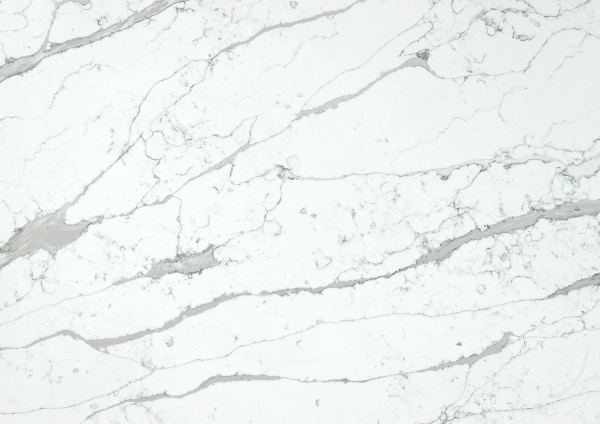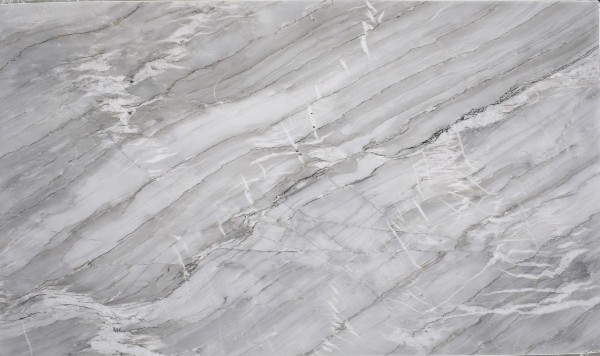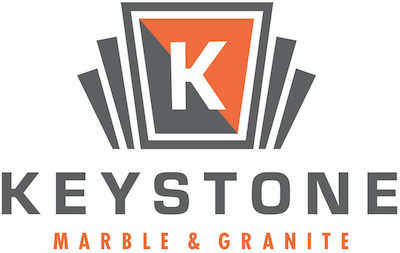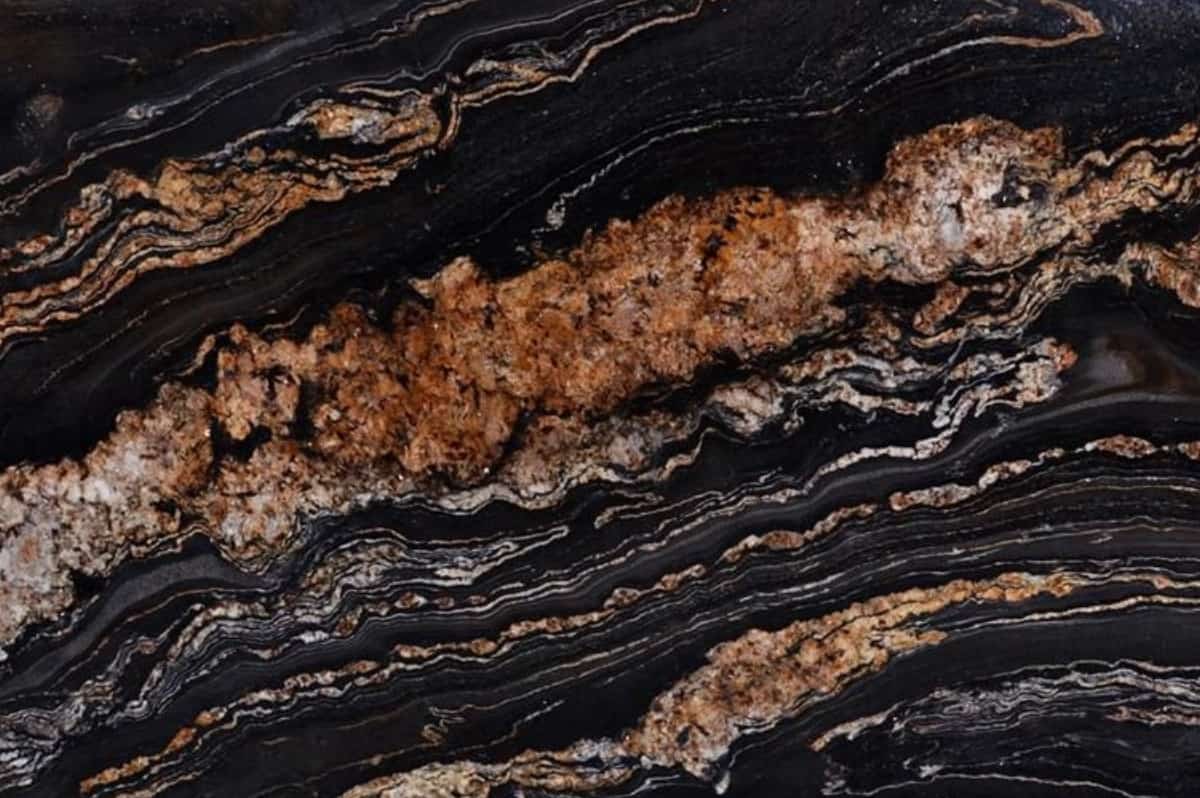As two often-mixed countertop materials, quartz and quartzite are both famous for unique reasons that differentiate them from each other.
If you are in the middle of a kitchen renovation and trying to figure out which countertop you should pick between the two, it is just the time to learn all you need about quartz countertops and quartzite countertops.
Keep reading our blog post so that you can make an informed decision regarding your countertop material.
What are Quartz Countertops?
As an engineered stone, quartz is a famous countertop material, consisting primarily of quartz crystals and also resins and pigments – which are human-made materials that bind quartz. Quartz countertops are highly strong thanks to their manufacturing process that requires exposure to pressure and heat, ensuring longevity.
Besides, with the advanced technology of countertop manufacturing, quartz countertops gain versatility, allowing them to mimic any other countertop material.
Accordingly, your quartz countertops can resemble the look of marble or granite while carrying the properties of quartz. Moreover, the pigments added to quartz let quartz countertops come in endless color and pattern options, allowing these countertops to be a suitable complement to any design.
What are Quartzite Countertops?
As a metamorphic rock, quartzite naturally occurs when the sandstone in quartz is exposed to high pressure and heat.
After being formed beneath the earth’s surface, quartzite is mined and cut into slabs to be turned into quartzite countertops or other applications. Like many other natural countertop materials, quartzite also has a porous surface that requires sealing to ensure well-maintenance and longevity.
In addition, unlike quartz countertops, quartzite countertops have specific color options, as quartzite contains only naturally occurring components. In this regard, generally coming in the tones of white or gray, iron oxide in the stone can also cause pink or red hues over the surface of quartzite countertops.
Besides, the patterns of quartzite countertops are also limited as they are the results of natural formation.
Quartz Countertops vs. Quartzite Countertops: Pros and Cons
Now, let us deepen our investigation regarding quartz vs. quartzite countertops by exploring each advantage and disadvantage that quartz and quartzite countertops have.
Pros of Quartz Countertops
Quartz countertops have many advantages, making them a great pick for many homeowners. Some remarkable pros of quartz countertops are listed below:
- Durability
If you are after a countertop material that will not crack, scratch, or get chipped easily, quartz is one of the best alternatives you have. Thanks to the advanced manufacturing process of quartz countertops, they are amongst the most durable countertops that ensure longevity and safety to users.
However, the durability of quartz does not mean that it is indestructible. Its hard composition may indeed make quartz countertops susceptible to scratches and chips, but such damage is quite unlikely with everyday use.
- Non-Porous Surface and Resistance
As one of the best advantages of this engineered stone, the non-porous surface of quartz countertops makes them resistant to many types of damage, like permanent stains ad bacterial growth.
While porous countertop materials absorb liquids quickly, causing staining, bacterial growth, and discoloration, quartz countertops are highly immune to such damage, thanks to their non-porous surface.
However, this should be understood as something other than being stain-proof which eliminates the necessity of regular cleaning and care. For instance, chemicals and some acidic liquids can cause reactions and damage quartz countertops.
- Low-Maintenance and Easy Cleaning
Another advantage gained thanks to the non-porous surface of quartz countertops is its low maintenance.
Requiring little to no maintenance, quartz countertops are an appealing choice for many homeowners. As they do not need any sealing or special cleaning routine, you do not have to spend time, effort, and money to keep your quartz countertops well-maintained.
Keeping your quartz countertops clean with a gentle cloth, water, and soap will be enough to keep them maintained.
- Appearance
This human-made countertop material can answer any need regarding look and design preferences. Know that there are suitable quartz countertops available in the market, whether your kitchen design is traditional, transitional, or modern. In other words, the variety of quartz countertops makes them ideal for any kitchen design.
Besides, quartz countertops can mimic the look of natural materials, like marble, making them a perfect fit for those wishing for the elegance of marble and the durability of quartz at the same time.
Finally, quartz countertops can come in endless color and pattern options, making them suitable for any color palette used in kitchens.
- Warranty
Since the manufacturers are highly confident in the durability of quartz countertops, the leading quartz countertops manufacturers have no hesitations in offering generous warranties. Some of these top-quality brands providing the best quartz countertops with long-term warranties are Silestone, Cambria, and Caesarstone.

What are the Disadvantages of Quartz Countertops?
Besides their countless pros, some cons of quartz countertops are worth considering. Here are the quartz countertops’ disadvantages you should keep in mind before finalizing your decision:
- Price
It is not surprising that all these impressive advantages come with a cost. Although quartz countertop cost depends on variables like manufacturer, design, colors and patterns, type of edging, installation, size, and the number of the slab, etc., what is certain is that quality quartz countertops are costly.
However, since quartz countertops ensure longevity without necessitating a specific maintenance routine, you can consider them a wise investment for your home in the long term.
- Vulnerability to Heat Damage
Quartz countertops are not really resistant to heat because of the resin polymer fillers in the material. In this regard, hot pans and pots may cause permanent damage, like discoloration. To protect your quartz countertops from heat damage, you should avoid placing hot items directly on your quartz countertops.
- Suitable Only for Indoor Use
As they are not that much resistant to heat, extended exposure to direct sunlight might permanently damage quartz countertops. UV lights will cause discoloration over the surface of quartz countertops and leave them with an unwanted look.
Hence, quartz countertops are not suitable for outdoor use, where they will constantly be exposed to sunlight.
- Requirement for Professional Installation
If you are after a DIY installation for your counters, know that quartz is not suitable for this project. This heavy material requires professional installation to ensure a secure and strong foundation and a perfect appearance.
In this regard, you should be willing to work with well-experienced professionals for adequate quartz countertop installation.

Pros of Quartzite Countertops
As a natural stone, quartzite is a favorable countertop material for various reasons. Keep reading to discover the features that make quartzite countertops preferable for many.
- Natural Stone
Quartzite is an all-natural stone made by nature itself and contains only naturally occurring components, making quartzite countertops eco-conscious decisions. If a naturally-formed countertop material is appealing to you, then quartzite countertops are one of the best alternatives you have.
- Durability
Similar to granite, quartzite is a hard stone, making it highly durable for years and years. As it is naturally formed under extreme heat and pressure, quartzite gains incredible durability, allowing it to resist many kinds of damage. The durability of quartzite is one of the top reasons that make it an excellent countertop material.
- Resistance
Quartzite countertops are resistant to scratches, acids, etches, heat, and, most famously, UV lights. Although quartzite has a porous surface that makes annual sealing a requirement, well-maintained quartzite countertops will resist wear and tear perfectly.
- Suitable for Outdoor Use
Quartzite countertops’ resistance to UV lights makes them great picks for outdoor use, as they will not fade under direct sunlight. Thus, if you want to create an outdoor kitchen, quartzite countertops will be the best choice for you as long as they are well-maintained with proper cleaning and regular sealing.
- Appearance
With its grey and white colors, quartzite represents elegant and classic beauty. Besides, it has a marble-like look while requiring less maintenance and cost less than marble. Moreover, the earthier feel that quartzite countertops carry brings a nature-like beauty to your design.
- Easy Cleaning
As long as you commit to regular sealing for your quartzite countertops, you do not have to worry about keeping them clean because all you need to do is use a gentle cleaner, soft cloth, and clean water and wipe up the spills immediately. This way, you will preserve the beauty of your quartzite countertops for years to come.
What are the Disadvantages of Quartzite Countertops?
Like all countertop materials, quartzite also carries some cons that should be kept in mind to decide whether quartzite countertops can be the answer to your needs and expectations.
- Price
Although quartzite countertops are cheaper than marble ones, they are still among the most costly countertops available in the market because the overall process, from mining to cutting into slabs, is highly expensive. Therefore, the complexity of this process makes quartzite countertops’ cost higher than the cost of quartz ones.
- Regular Sealing
Since quartzite countertops have a porous surface, they must be sealed regularly to protect them from damage, like permanent stains and bacterial growth. As long as you commit to an annual sealing routine, you can keep your quartzite countertops shiny and free from stains and bacterial growth.
- Limited Color Options
Quartzite countertops generally come in white or gray colors, although they can sometimes have unique hues caused by iron oxide in the stone. If you want more color options for your countertop material, there may be better choices than quartzite because of its limited color options.
- Requirement for Professional Installation
As they are dense, hard, and heavy, quartzite countertops are not suitable for DIY installation. Rather, they require skilled craftsmanship and appropriate tools to be installed perfectly.
Which One Should You Choose?
Throughout this blog post, we have elaborately compared quartz countertops and quartzite countertops. According to this detailed comparison between the two, both countertop materials have unique features that make them perfect choices for different requirements and expectations.
Although both materials share some properties, like durability, the requirement for professional installation, and easy cleaning, their differences actually make one superior to the other according to your unique needs.
For instance, if you wish to have an all-natural countertop that is resistant to UV lights and suitable for both indoor and outdoor use, then quartzite countertops should be your choice. Consider that you want countertops that are pretty easy to maintain, have a long-term warranty, and come in endless color and pattern options.
In that case, quartz countertops will be perfect for you. Hence, the requirements of your design project will determine the best choice between the two.
Quartz vs quartzite price
When comparing the cost difference between quartz and quartzite countertops, several factors that influence the price tag should be considered. In general, quartz which is an engineered stone, tends to be less costly than the natural stone quartzite. The reason for the price difference is due to the differing processes of manufacturing and their availability.
Quartz slabs are manufactured through a process that combines crushed quartzite particles with resins and pigments. These resins add stain resistance and durability to the stone. Pigments add the ability to make them in any desired color or pattern.
Engineered quartz offers more control over the appearance and overall composition of the end products compared to natural stones. The abundance of quartz contributes to its affordable price, making it a very popular choice.
On the contrary, quartzite goes through a complicated journey of extraction from the earth to fabrication and installation. It is a highly durable and hard metamorphic stone. As it is a high-quality stone that has a limit to its availability, it is more expensive than quartz in general.
Moreover, its extensive extraction process that requires a lot of skilled and experienced labor contributes to the price. The rarity of the slab will also affect the price because rare designs or colors will be more expensive than common ones.
Additionally, both in the cases of quartz and quartzite the quality, thickness, and customization of the slab will influence the price of the countertops for your kitchen.
Very thick slabs made out of an exceptionally high-quality material will cost more than slabs with an average thickness. Similarly, adding ornate edge profiles or similarly intricate detailing to the countertop design will add to the cost.
Can quartzite be in the sun?
Quartzite can be installed in areas that are exposed to sunlight without a problem. It is highly resistant to UV radiation and heat, making it an ideal option for outdoor use such as countertops for outside kitchens as well. As opposed to engineered materials that can experience discoloration or yellowing after extended exposure to direct sunlight, quartzite will maintain its beauty and structural integrity.
The naturally durable composition of quartzite ensures that it can withstand UV rays without its color fading or sustaining that damage. Its dense structure that is formed through a metamorphic process allows it to be resistant to most environmental factors.
It is a preferred choice for outdoor kitchens, kitchenette patios, and pool surrounds as it can endure the direct rays of sunshine and various temperature changes through the seasons.
Moreover, it is also suitable to use on indoor countertops that are directly in front of windows as there is no sun or heat damage risk. Its heat resistance also means that placing hot pots or pans on the countertops won’t cause damage to the stone.
Does water soak into quartzite?
Quartzite has a relatively low porosity when compared to its natural alternatives such as marble or granite. Although it is not as impermeable as engineered stones such as quartz, it has a certain amount of natural resistance to water absorption. This is mostly caused by its dense and durable composition.
As low as its porosity is, it should not be forgotten that it is still a porous stone. Therefore, similar to other natural stones it should be sealed before it is used and resealed regularly afterward.
Quartzite is similar to granite in this regard. To explain, one of the benefits of granite countertops is that it is also resistant to water damage when it is sealed.
Additionally, similar to sealed granite countertops, quartzite also needs annual resealing so that the protective layer can be replenished and the barrier between the stone and the outside world is strengthened. While resealing, make sure that every square foot of the stone is covered for maximum protection.
Overall, although quartzite exhibits some water resistance, it is essential to reseal it regularly to ensure that it can withstand water damage and last a long time.


